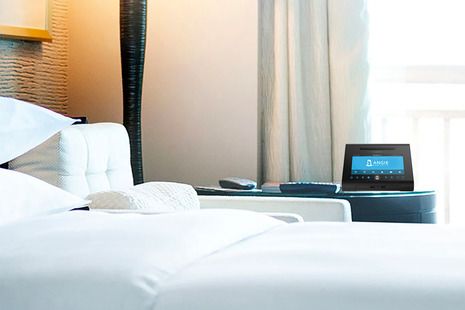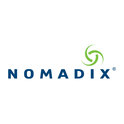

In many ways, the hospitality industry is founded on high touch interactions. Beyond the obvious appeal of an ideal location, the experience of a new culture, or a momentary 'pause' or escape from everyday life, much of the guest travel experience is defined by the services they experience. Each trip comprises memorable moments delivered via expertly curated interactions with hotel staff and the property itself. This is what we refer to as touchpoints; the opportunities your hotel has to make a lasting impression, provide hands-on convenience or service, and establish a genuine connection and rapport with guests.
However, in a post-COVID-19 world, we understand that the touchpoints which have long defined our industry will be subject to significant change. To maintain the safety of guests and hotel staff alike, in accordance with public health recommendations and newly minted standards, physical touchpoints will have to be limited. Around the world, hotel properties will aptly establish a 'new normal,' which will include an influx of self-service and touchless technology that empower high-touch service without the 'touch.' Public Areas
As we introduced in Part 1 of this series, hotels will be expected to overhaul their existing cleaning standards to suit a new set of heightened best practices. While hotel brands already adhere to rigorous cleaning measures, there is still room for improvement, namely through the implementation of a Cleanliness Manager, frequent disinfection and upkeep, guest/staff screening, and contact-free services. Understandably, the public areas of hotels are of specific concern, as hotel lobbies and their accompanying amenities are communal and interactive in nature. While these areas cannot cease to exist due to the integral role they play in the hospitality infrastructure, guests will undoubtedly seek out those hotels that have publicly demonstrated new cleaning, safety, and social distancing measures. Best Western's President and CEO David Kong reiterated this when he recently said, "Most travelers will be hyper-conscious of cleanliness, and they will look for hotels that have stringent cleaning protocols in place." Hoteliers should also expect enhanced regulatory measures to come down the pipeline, with the possibility of new 'cleanliness certifications' and sanitization authorities. From High Touch to No Touch
Beyond enhanced cleaning practices, many properties will also shift to embrace a more 'minimalistic' decor, removing unnecessary decorative items that may pose a transmission risk and to simplify cleaning measures. Guests will also likely feel increasingly inclined to utilize self-service technology, which allows for contact-free check-in, check-out, concierge access, and more. In this regard, mobile and self-service technology will become integral to a hotel's offering. Empowering guests to leverage their personal devices to check-in, enter their rooms, and to engage with virtual concierges, gives them control and peace of mind. Food Service
The F&B service provided by hotels is an undeniably integral component of the hospitality experience. However, moving beyond this pandemic, certain aspects of the F&B experience will likely be forever changed. With expectations for heightened sanitization protocol across all touchpoints, hotel guests will expect increased use of sanitizers, wipes, and hand washing. Within restaurants, cleaning protocols should mirror those applied to public areas of hotels, with increased frequency of menu and table sanitization. Some properties are shifting to digitized menus and ordering viewed via the guest's personal mobile device, as well as increased demand for pre-made meals and in-room dining. Existing self-service ordering options may be reimagined to offer a no-touch solution for guests, and the push for enhanced automation will continue. Those properties able to invest in modern solutions or upgrades will likely seek out autonomous solutions such as full-service mobile apps or even robots to wait on their guests. The In-Room Experience
The shift to voice-activated technology had already begun pre-COVID-19, and that technology will become incredibly commonplace moving forward. Guests will likely seek out those properties which allow for contact-free control of their environment, offered via smart room technology. With hands-free control, guests can minimize their contact with elements of the room, including light switches, TV remotes, thermostats, and more. Hoteliers should also anticipate an influx of digitized in-room features, including mobile in-room menus, TV channel guides, and digital versions of materials/information, which would normally be printed for guest use. Within the in-room experience, hotels may also resort to single-use items and empty mini-bars, only providing goods upon specific request to avoid the risk of contamination. Upon check-in, guests may be provided bags for used towels, bedding, and trash, which they can place outside their room when they require changeover. Of course, with the subsequent push for eco-conscious practices, hotels will face a unique dilemma of balancing guest safety without relying too heavily on single-use plastic. Public Amenities
Similar to public areas, amenities often inspire close interaction with other hotel guests. Hotels will likely reconsider certain amenities, such as gyms, study/meeting rooms, spas, and more. While these spaces and services will not necessarily be closed to guests, they will be subject to enhanced cleaning and restricted occupancy. In some cases, properties may shift to a reservation model, which allows guests to 'pre-book' access to an amenity, with enough time between bookings to ensure strict sanitization. Masks or protective equipment for staff and guests may also be required. Individual amenities such as excess hangers, linens, robes, and extra pillows will likely be removed from the room and only provided upon guest request. The hospitality industry faces a brave new world in the months ahead, one which requires no shortage of innovation. Standards of guest service will remain high, but those traditional touchpoints we have always known will receive a critical makeover to ensure safety and service in equal measure. In the meantime, hoteliers, innovation is on the horizon. In part three of this series, we explore the rise of contactless guest-room technology and the way it will redefine the in-room experience.
 Ripe for Rebound: The Future of Hospitality | By David Millili Ripe for Rebound: The Future of Hospitality | By David MilliliThursday 30 July 2020 |
 Ripe for Rebound: Contactless Guest Room Technology | By David Millili Ripe for Rebound: Contactless Guest Room Technology | By David MilliliThursday 13 August 2020 |
Contact
Pam Goncalves
Chief Marketing Officer
Phone: 408 307 3091
Email: pam.goncalves@nomadix.com
Organization
Nomadix, Inc.
https://nomadix.com/home.html
2925 E Plano Parkway
USA
- Plano, TX 75074
Phone: 1 818 575 2500
Email: info@nomadix.com
Recent News
 Is Your Smart Thermostat Doing Too Much? Move Intelligence to the Cloud to Unlock AI and Predictive Capabilities | By Jeff Johns Is Your Smart Thermostat Doing Too Much? Move Intelligence to the Cloud to Unlock AI and Predictive Capabilities | By Jeff Johns |
 Nomadix Signs Strategic Agreement with TD SYNNEX Nomadix Signs Strategic Agreement with TD SYNNEX |
 Nomadix Showcases New Solutions and Product Features at HITEC 2025 Nomadix Showcases New Solutions and Product Features at HITEC 2025 |